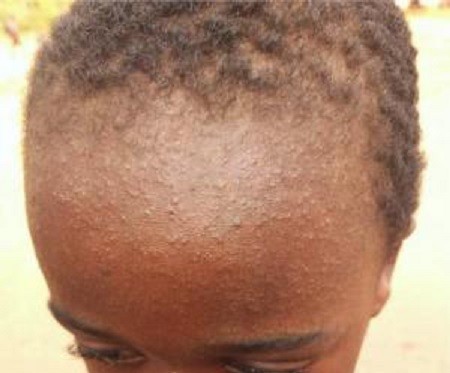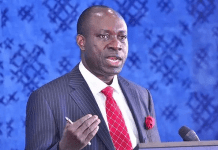
The World Health Organisation says about 16.6 million children in Africa missed planned supplemental measles vaccine doses between January 2020 and April 2021 due to the ravaging COVID-19 pandemic.
The WHO Regional Director for Africa, Ms Matshidiso Moeti, disclosed this during a virtual press conference facilitated by APO Group on Thursday.
The News Agency of Nigeria reports that Measles is highly contagious, requiring at least 95 percent immunisation coverage in the population to prevent outbreaks.
Yet coverage with the first dose of the measles-containing vaccine has stagnated at around 69 percent in the WHO African Region since 2013.
Only Seven countries in the region achieved 95 per cent measles-containing vaccine coverage in 2019.
The low measles coverage reflects a wider stagnation in routine immunisation in Africa that, in some countries, has been exacerbated by the pandemic and related restrictions.
Some diseases, including tetanus, diphtheria and yellow fever, require 90 per cent coverage in the population, yet rates in Africa remained stuck at around 70 to 75 per cent over the last decade.
Around nine million children in the African region miss life-saving vaccines, each year and one in five children remain unprotected from vaccine-preventable diseases, which claim the lives of over 500, 000 children under 5 years in Africa every year.
Moeti said that the outbreaks were largely due to low routine immunisation coverage caused by the COVID-19 pandemic.
She said eight African countries reported major measles outbreaks that affected tens of thousands during the aforementioned period.
She added that 15 African countries delayed measles immunization drives in 2020 as they dealt with the COVID-19 pandemic.
“Although seven of these countries have now completed the campaigns, the remaining eight still poses a risk of major measles outbreaks.
“The COVID-19 pandemic which has led to over three million deaths globally left gaps in routine immunization coverage in the Africa region.
“Recent outbreaks of measles, but also yellow fever, cholera and meningitis, all point to worrying gaps in immunization coverage and surveillance in Africa,” Moeti said.
As we fight COVID-19, we cannot leave anyone dangerously exposed to preventable diseases, she said, while urging countries to double down on essential health services, including life-saving vaccination campaigns.
Moeti said the WHO was working with African countries to ensure that routine immunization service delivery was scaled up to close the gaps created at the start of the pandemic.
“This includes providing policy guidance, helping strengthen health systems, training health care professionals, reinforcing disease surveillance and the use of data for action, as well as assisting with periodic mass vaccination campaigns for a range of vaccine-preventable diseases,” she added.
She explained that integrated action was needed to increase and expand access to immunization as part of primary health care.
She, however, added that this must be backed by a well-trained workforce, strong surveillance, health information systems, national leadership, management and coordination.
“We must also engage more with community leaders and influencers to ensure that everyone understands the life-saving, transformative promise of vaccines,” Moeti advised.
(NAN)











